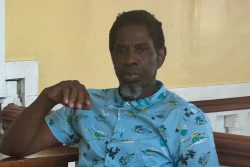Perhaps the more apt chorus would now come from The Foundations’ hit of the late 1960, ‘Buttercup’: “Why do you build me up…just to let me down and mess around.”
It has certainly been, once again, the theme in the current Tests and ODIs in India where, in every single match, the inexperienced West Indies have built us up only to let us down by converting surprisingly strong positions into four defeats and one tie-draw.
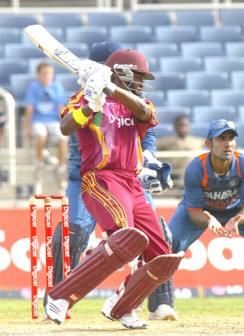
It is not a new phenomenon, although more pronounced, and thus more frustrating, over the past month or so. There have been several individual “positives”, to use the favourite noun of all captains and coaches, but they are diminished by the results and the manner of them.
Darren Bravo confirmed his promise as a star of the future. Kirk Edwards’ consistency at No.3 proved that his debut Test hundred in Dominica in July was no one-innings wonder. Marlon Samuels’ now sanctioned off-spin has given the bowling a new dimension.
Ravi Rampaul maintained the form that made him the outstanding bowler in the Caribbean earlier in the year and there are gradual signs that Kemar Roach is regaining the confidence and penetration that made him such an effective leader of the attack on his entry into the team.
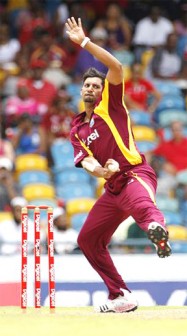
Without piling up big runs, Kraigg Brathwaite, 18, and Kieran Pollard, 21, all the same showed they were more than just boys in a big man’s world but batsmen with the potential for long and productive futures.
So why did the West Indies repeatedly squander winning positions? Why did first innings leads of 95 in the first Test and 108 in the third end in defeat in the first instance, a scrambled tie-draw in the second when a first innings total 590 was followed by a second innings 134?
The same questions could be repeated for the two ODIs to date.
In the first, the pace of Roach and Andre Russell left India lurching at 59 for five replying to a seemingly inadequate 211 only for them to recover and, finally, for the last pair to squeeze out the last 10 runs for victory by one wicket. The West Indies helped them along with 16 wides and four no-balls (each worth a free hit) in 23 extras, crippling statistics in a low-scoring match
In the second, Rampaul’s extraordinary record 66-ball, unbeaten 89 at No.10 and his last wicket partnership of 99 with the unruffled Roach was followed by India faltering at 84 for three in the 17th over.
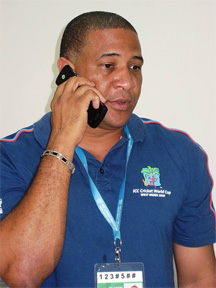
The West Indies had reason to be bouyant but the balloon soon burst. By then, they had missed four catches, flawed tactics subsequently allowed Virat Kohli (the same one whose dislike of bodyline bowling had been exposed in the Caribbean) and Rohit Sharma to comfortably gather singles to the deep-set fields and inevitable victory was achieved with five wickets and 11 balls to spare.
So why does it all go so wrong so often?
To be sure, the failures with the bat of the wicket-keepers at No.7 and captain Darren Sammy at No.8 repeatedly opened the door to late order collapses.
The bowling often went flat once the ball lost its shine and hardness.
To state that Chris Gayle’s hypothetical inclusion would have been a boost of experience and proven record is to state the obvious but it wasn’t much different when he was in the 11.
The reasons for such stunning reversals go beyond cricket alone. As Harsha Bhogle, the Indian writer and commentator, put it after the first Test, the West Indies “seemed to be trapped in a mindset that dooms them to failure.”
It is not a condition easily resolved. It is a truism applicable to all team sports that losing becomes a habit as much as winning, perhaps even more so.
Floyd Reifer, who is coach of the Barbados champions, University of the West Indies (UWI), and the Combined Campuses and Colleges (CCC) at regional level, and thus close to young charges, has identified one of his priorities.
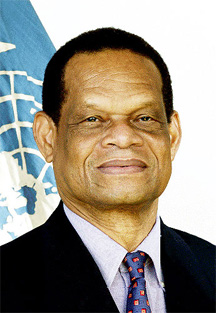
“Winning is part of development as well,” he said recently, recognising that batting, bowling and fielding are not the be all and end all of his remit. “We have to create guys who, when they get into positions to win matches, they know how to win them.”
It is easier said than done but it must be an urgent priority for all West Indies’ coaches, most especially at age-group levels.
++++++++++++++++++++
Two days after my query in last week’s column over the status of West Indies Cricket Board (WICB) president Julian Hunte and chief executive Ernest Hilaire, given the earlier International Cricket Council (ICC) statement on its ban on political interference in administration, the WICB circulated a detailed letter from the ICC to member boards clarifying the overall position.
My concern was that both Hunte and Hilaire are politicians with prominent positions on the St. Lucia Labour Party (SLP), since elected as the government, and, as such, could come under the ICC microscope. Without referring to either by name, the ICC missive made it clear that that they do not and that they hold their positions as of right.
The purpose of its letter, the ICC stated, was “to assist members in understanding the implications of this new provision” and “to offer guidance and support in ensuring compliance.”
It listed the choices for sitting on boards of its members as election in a “free and fair election process held by the membership body”, appointed by their own members to such positions or nominated from outside by their executive body.
Hunte and Hilaire meet the criteria.
While the ICC stated that it was possible for a government official to be elected to a member board’s executive, or for the executive itself to appoint such an official, its governance review committee felt that such an individual be in a non-voting capacity “in order to avoid undermining” the purpose of the new provision.
As noted in my column, the ICC move to prevent government interference was “specifically aimed at Pakistan, Bangladesh and Sri Lanka where government control of cricket is comprehensive.”
While I acknowledged that “Hunte and Hilaire are not government appointees, they are politicians all the same (both prominent in the St. Lucia Labour and so covered by the ICC decision.”
There remain those close to the ground in St. Lucia who believe, once his contract expires, Hilaire will return to government business, now that the SLP is back in power. For the time being, he and Hunte continue to look after West Indies cricket.





